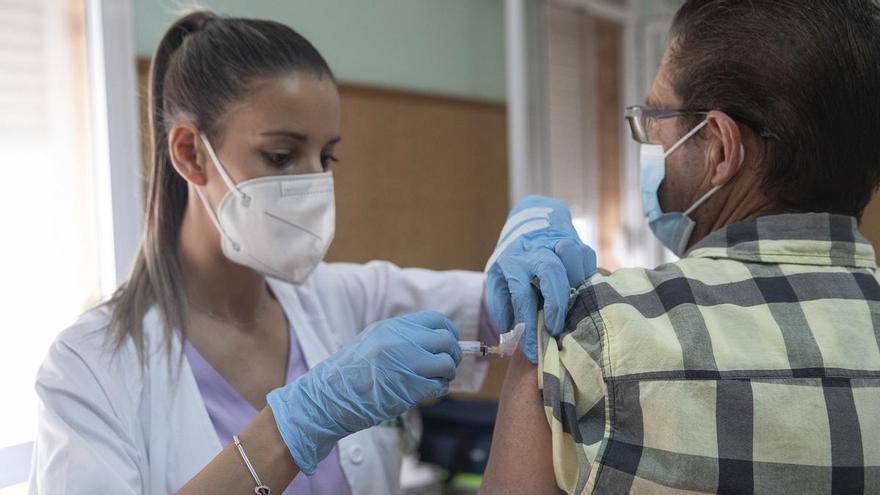Covid in Valencia: three cases of disease

The incidence of acute respiratory infections (ARI) caused by Covid in Valencian Community over the past week has almost tripled and reached 34.7 cases per hundred thousand peoplecompared to 11.8 cases the previous week.
Social events over the last long weekend may have contributed to the increase, but they do not pose “a particular risk to the general population,” an epidemiologist and university researcher tells EFE. Valencian Community Foundation for Health and Biomedical Research (Fisabio) Salvador Peirowhich indicates that covid “does not currently exhibit seasonal behavior.”
Reduces the incidence of ARVI
The incidence of acute respiratory infections (ARI) caused by covid, influenza and RSV, in Valencian Community has decreased over the past week and is 666.7 cases per hundred thousand inhabitants (477.1 national average) compared to 737.4 in the previous week (average 400.8).
This is evidenced by the latest Acute Respiratory Infection Surveillance System Bulletin (IRA) Valencian Community (SIVIRA CV), which includes the incidence of ARI caused by covid, influenza and respiratory syncytial virus (RSV) for the 20th week of 2024 (from May 13 to 19).
While the incidence of severe ARI in Valencian hospitals was 17.1 cases per hundred thousand inhabitants in the week of 6 to 12 May (12.3 nationally), a week later it dropped in the Valencian Community to 15.2. cases, but nationally it has risen to 15 cases. “This does not seem to cause much pressure in the hospital,” says Salvador Peiro..
The most severe cases of acute respiratory infections in hospitals are people over 80 years of age with an incidence of 100.7 cases per hundred thousand people over the past week (130.1 cases in the previous week), as well as persons under 4 years of age with an incidence of 10.7 cases. at week 20 (15.3 cases at week 19).
As for acute respiratory infections caused by Covid, the incidence increased almost threefold and amounted to 34.7 cases per hundred thousand inhabitants, compared to 11.8 cases in the previous week. As for the flu, in the 20th week it was 6 cases per hundred thousand inhabitants (5.9 cases the week before).
The incidence of ARVI caused by RSV in the 20th week of this year decreased slightly and amounted to 6.7 cases per hundred thousand people, whereas a week earlier it was 7.4 cases.
The most affected age groups are children under 4 years of age, whose incidence in the last week was 2278 cases per hundred thousand inhabitants, compared to 2501.2 in the previous week; and those over 65 years of age, whose incidence was 601.7 cases in week 20 (641 cases the week before).
Most paintings today are minors.
Salvador Peiro assures EFE that the increase suggests that the social events of the last long weekend “will help”, but adds that the current situation “does not pose a particular risk for the population as a whole”.
“Covid does not seem to show seasonal behavior (in winter) at the moment,” says Peyraud, for whom this has its explanation in the distance from the previous “wave” and vaccination campaigns, since “protection” against infection is either due to previous Covid disease, or due to vaccination – lasts about five or six months, and after this time “we become susceptible again.”
Protection against serious infection requiring hospitalization is “pretty well maintained, which explains why most cases are currently minor,” Peyraud said.
He adds to EFE that when the dominant variants of a season have difficulty transmitting infection (because there is a large population immunized by previous infections or vaccines), they are replaced by new variants that are better at evading our antibodies’ ability to evade infection (rather than disease). serious).
He believes that over the last holiday weekend, human behavior such as more or less large gatherings, especially indoors, as well as human mobility, which carries SARS-CoV-2 from one place to another, “contributed” to this increase.
Peyraud advises that, as always, as with any other respiratory illness, it is “advisable to avoid meeting people who are particularly prone to developing serious illness,” such as the very elderly, those with weakened immune systems, or any transplant recipients.
In the current situation, “as long as we are no longer using isolation, there is no need to do tests. We don’t care if it’s Covid or something else (except in some very specific cases of vulnerable people in which some treatment may help. can be used if there’s Covid-19) and in most cases it’s not even necessary to see a doctor “, emphasizes the epidemiologist.
